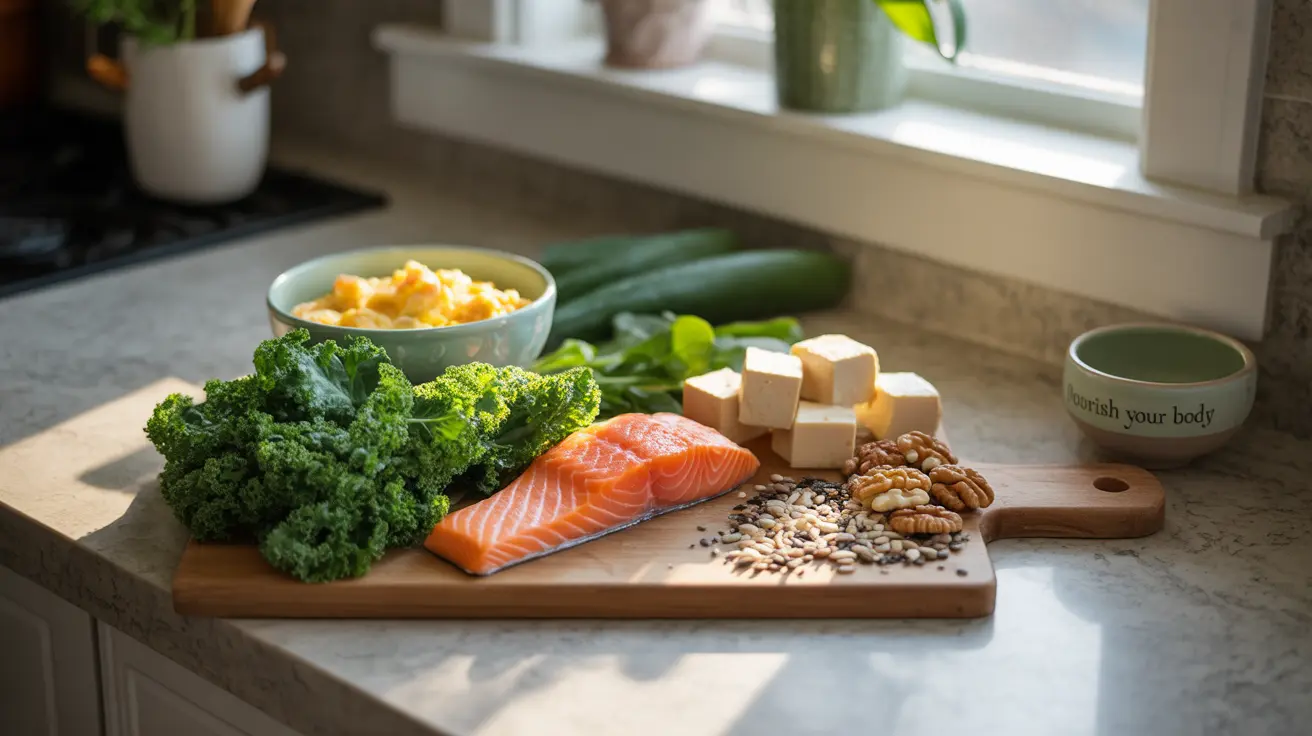Understanding how to naturally support healthy estrogen levels is crucial for women's overall well-being and hormonal balance. While the body primarily produces estrogen through the ovaries, certain vitamins and nutrients can play a supporting role in maintaining optimal hormone levels and metabolism.
This comprehensive guide explores the vital vitamins and nutrients that may help support healthy estrogen levels naturally, along with dietary sources and lifestyle considerations for maintaining hormonal balance.
The Role of Vitamin D in Estrogen Production
Vitamin D plays a crucial role in hormone production and regulation, including estrogen synthesis. Research suggests that vitamin D receptors are present in the same tissues that produce estrogen, indicating a close relationship between these two important compounds.
To maintain adequate vitamin D levels, consider these sources:
- Sunlight exposure (15-20 minutes daily)
- Fatty fish like salmon and mackerel
- Egg yolks
- Fortified dairy products
- Mushrooms exposed to UV light
B Vitamins and Estrogen Metabolism
B vitamins are essential for proper hormone metabolism and can help support healthy estrogen levels. Different B vitamins play specific roles in this process:
B6 (Pyridoxine)
Vitamin B6 helps regulate hormonal activity and supports the metabolism of estrogen. Food sources include:
- Chickpeas and other legumes
- Potatoes
- Bananas
- Turkey
- Fish
B12 and Folate
These vitamins support overall hormone balance and help maintain healthy estrogen metabolism. Find them in:
- Leafy green vegetables
- Fortified cereals
- Eggs
- Lean meats
- Legumes
Phytoestrogen-Rich Foods and Supporting Nutrients
Certain foods contain natural compounds called phytoestrogens that can help support hormone balance. Key sources include:
Soy-Based Foods
Soy products are rich in isoflavones, a type of phytoestrogen. Consider incorporating:
- Organic soybeans
- Tempeh
- Tofu
- Edamame
Seeds and Nuts
Several seeds contain lignans, another type of phytoestrogen:
- Flaxseeds
- Sesame seeds
- Pumpkin seeds
- Walnuts
Additional Supportive Nutrients
Other nutrients that may help support healthy estrogen levels include:
Vitamin E
This antioxidant vitamin supports overall hormonal health. Find it in:
- Almonds
- Sunflower seeds
- Avocados
- Spinach
Magnesium
Magnesium helps regulate hormone production and can be found in:
- Dark chocolate
- Pumpkin seeds
- Spinach
- Black beans
Frequently Asked Questions
What vitamins are best for naturally increasing estrogen levels?
The most important vitamins for supporting healthy estrogen levels include vitamin D, B-complex vitamins (especially B6, B12, and folate), and vitamin E. These vitamins work together to support hormone production and metabolism.
How does vitamin D affect estrogen production and hormone balance?
Vitamin D helps regulate hormone production by interacting with hormone-producing tissues. It supports the proper function of estrogen receptors and helps maintain overall hormonal balance. Low vitamin D levels have been associated with hormonal imbalances.
Can foods like soybeans and flax seeds help boost estrogen levels naturally?
Yes, soybeans and flax seeds contain phytoestrogens, which are plant compounds that can have mild estrogen-like effects in the body. While they don't directly increase estrogen production, they can help support overall hormonal balance.
What role do B vitamins play in supporting estrogen metabolism?
B vitamins are crucial for hormone metabolism and regulation. They help the body process and utilize estrogen effectively, support liver function for hormone processing, and contribute to overall hormonal balance.
Are there any vitamins or supplements that help reduce menopause symptoms related to low estrogen?
Vitamin D, B-complex vitamins, and vitamin E may help alleviate some menopause symptoms. Additionally, supplements containing black cohosh, evening primrose oil, and other herbs may provide relief, though it's important to consult with a healthcare provider before starting any supplement regimen.




